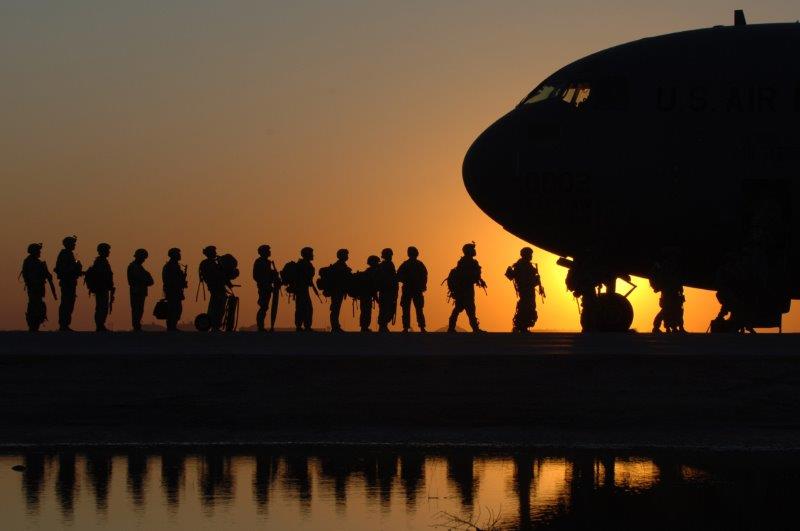Going to the beach or pool to swim and relax is one of life's great pleasures. But water environments can also be unpredictable and dangerous. That's where lifeguards come in. These highly trained aquatic protectors watch over beachgoers and swimmers, ready to jump into action the moment an emergency strikes.
So, are lifeguards first responders? Lifeguards perform a vital public safety role. However, they don't receive the same recognition and benefits as other first responder EMS professions like firefighters, police officers and EMTs. This article explores whether lifeguards should be classified as first responders based on their duties, skills, risks faced, and the advocacy efforts underway to change their official status.
Key Takeaways:
- Lifeguards are often the first to respond to water emergencies, providing rescue and medical aid.
- Extensive training is required to work as a lifeguard, covering water rescue, first aid, CPR and other areas.
- Lifeguards face serious hazards like rip currents, drowning risks, and shark attacks.
- Designation as first responders would grant lifeguards better health benefits, recruitment tools, respect and more.
- Advocacy and legislation initiatives are underway to classify lifeguards as first responders at the state and federal level.
Lifeguards Perform Critical Rescue Operations
Part of what defines first responders are their frontline duties responding to emergencies and protecting the public. Lifeguards absolutely serve this first responder role, conducting water rescues and providing medical assistance in their aquatic work environment.

Lifeguards Conduct Ocean and Beach Rescues
Lifeguards stationed at beaches face the constant threat of dangerous rip currents that can pull swimmers out to sea. They have to be ready to jump in and perform rescues at a moment's notice.
Some lifeguards are remarkably busy with rescues. Ryan Clark estimates he's made over 500 rescues since he started lifeguarding at 16. He recalls one challenging day:
"As I got the girls in, I was dead tired. I turned around and there's a lady and her two kids headed out right in the same spot. I dived back in and rescued the two kids. Another lifeguard, who had arrived as backup, dealt with the mom."
In just 15 minutes, Clark performed 5 ocean rescues! This shows how lifeguards serve as essential first responders, putting their own safety on the line when beachgoers are in imminent danger of drowning.
Lifeguards Respond to Medical Emergencies
In addition to water rescues, lifeguards often provide first response medical care. Though they don't work from an ambulance, they are trained in CPR, first aid, using AEDs and administering emergency oxygen.
Lifeguards respond to many types of medical emergencies including:
- Heart attacks
- Drowning victims
- Heat stroke
- Severe injuries and trauma
- Jellyfish stings
- Childbirth
Their quick actions assessing patients, starting CPR, stopping bleeding and more can help save lives before paramedics arrive.
Whether jumping into the waves to rescue a struggling swimmer or performing CPR on an unconscious beachgoer, lifeguards are first on the scene providing emergency aid.
Lifeguards Undergo Extensive Training

If you want to become a lifeguard, you can't just show up with a pair of sunglasses and a whistle. Rigorous training and certification is required. This is another factor that supports lifeguards receiving first responder recognition.
Certification in Lifeguarding, CPR and First Aid
At a minimum, a lifeguard must become certified in:
- Lifeguarding
- First aid
- CPR/AED - including mouth-to-mouth resuscitation
Some stats on lifeguard training:
- 100s of hours are required to complete full training
- American Red Cross certification is common
- Training covers recognizing emergencies, response protocols, using rescue equipment and more
This first aid and lifesaving knowledge is put to the test on a daily basis. Lifeguards receive training and depend on it to quickly assess situations and take appropriate action.
| Medical Emergencies | Rescue Techniques | First Aid |
|---|---|---|
| Lifeguards are trained to respond to medical emergencies such as heart attacks, strokes, and allergic reactions. | Lifeguards are skilled in various water rescue techniques, including rescuing drowning victims, using rescue buoys, and performing water-based rescues. | Lifeguards are proficient in providing first aid to injured individuals, including controlling bleeding, immobilizing fractures, and providing CPR as needed. |
Training in Water Rescue Methods
In addition to medical skills, ocean lifeguards receive specialized instruction in water rescue techniques. For example:
- Swimming through rip currents
- Board rescues
- Using buoys and specialized flotation devices
- Spinal injury management
Beach lifeguards have to train extensively on making rescues in the uniquely challenging coastal environment.
Ongoing Fitness Testing
Most lifeguard agencies require skills and fitness tests several times a year. Lifeguards have to prove they can:
- Swim long distances
- Tread water for extended periods
- Dive to depths for rescue recovery
- Tow or carry heavy rescue equipment and patients
- Run and paddle quickly through sand and water
Maintaining top physical fitness is crucial to perform rescues and withstand the demands of the work.
The specialized medical, lifesaving and fitness training lifeguards undergo equips them to act as first responders. Their skills are put to the test daily at beaches, lakes and pools.
Lifeguards Face Serious Hazards and Risks

Another reason lifeguards deserve recognition as first responders is the substantial dangers they confront. Like police, firefighters and emergency medical technicians (EMT's), lifeguards deliberately put themselves in harm's way to protect the public.
Some of the serious risks faced include:
Dangerous Rip Currents
Rip currents pose one of the biggest risks for beach lifeguards. These strong currents can easily overpower swimmers and pull them out into deep water. Lifeguards have to be experts at breaking free from rip currents when performing rescues.
Risk of Drowning
Entering rough seas to save someone in distress, a lifeguard may become overwhelmed and face risk of drowning themselves. Their training enables lifeguards to rescue while minimizing, but not eliminating, their own peril.
Shark Attacks
As shark sightings rise, lifeguards face heightened risk of shark attacks when entering the water. Getting designation as first responders would ensure access to health benefits if injured in a shark attack on duty.
While lifeguards willingly take on these hazards, it's important to recognize the grave dangers they encounter in the line of duty as another reason they deserve first responder status.
Lifeguards Seek Recognition as First Responders

So it's clear lifeguards fill a first responder role for water emergencies. But they aren't officially classified as such. Various advocacy efforts are underway to change that.
Giving lifeguards first responder designation would grant them important benefits, protections and respect.
Access to Better Health Benefits
If injured on the job, first responders can access medical care and disability benefits. Lifeguards need this same support. For example, if a lifeguard suffered a Career ending spinal injury during a rescue, they would want access to the same health coverage as firefighters or police officers hurt serving the public.
Improved Tools for Recruitment
Many lifeguard agencies are facing staff shortages. Classifying lifeguards as first responders may encourage more people to view it as a meaningful, professional career and help with recruitment and retention.
Greater Professional Respect
Despite their vital role, lifeguards often feel they don't get respect afforded other first responders. Granting them official designation would be an acknowledgment of their importance and help elevate the profession.
These potential benefits are fueling advocacy efforts to make lifeguards first responders.
Efforts to Grant Lifeguards First Responder Status
Multiple initiatives are underway to get lifeguards the legal classification and benefits of first responders. This involves legislation at both the state and federal level.
Lobbying State Legislators
In states like New York, lifeguard unions are lobbying governors and state lawmakers to pass laws granting first responder status to lifeguards. This would make the designation official at the state level.
Passing New Laws and Legislation
Certain states have passed laws to classify other professionals like 911 operators as first responders. Lifeguards are making the case that they should be included in new and existing first responder legislation.
Did You know: The United States Lifesaving Association estimates that lifeguards in the US conduct over 61,000 rescues and render first aid to a significant percentage of them.
Changing Perceptions of Lifeguard Role
Part of the advocacy work involves changing perceptions of the lifeguard role from a temporary summer job to a skilled profession requiring specialized training, experience and capabilities. Their work demands first responder recognition and compensation.
With the tireless efforts of lifeguard advocates, there is momentum building to finally accord lifeguards their rightful first responder status in the eyes of the law.
Lifeguards Deserve First Responder Recognition
When you examine the full scope of their job, it's clear lifeguards don't just sit in towers waiting to blow their whistles. They serve as first responders conducting swift water rescues, administering emergency medical aid, and risking their own safety to protect beachgoers and swimmers every day.
Through specialized training and selflessness in the face of danger, lifeguards uphold the same values and responsibilities as EMTs, police officers, firefighters and other acknowledged first responders. They deserve respect, support and formal classification as first responders. With new legislation and advocacy, hopefully these everyday heroes will finally get the recognition they have earned to continue providing their invaluable public safety service.
Frequently Asked Questions
Q: What are some lifeguard duties that qualify them as first responders?
A: Key lifeguard duties that meet the definition of a first responder include performing water rescues of swimmers in distress, administering first aid and CPR to unconscious or injured beachgoers, responding to various medical emergencies like heart attacks and jellyfish stings, and putting themselves at risk to save others.
Q: Do lifeguards currently get any benefits or protections as first responders?
A: No, without official designation as first responders, lifeguards do not receive protections like health coverage if injured on the job or disability benefits. They also miss out on recruitment incentives and professional recognition.
Q: What training and certifications are required to work as a lifeguard?
A: Mandatory training/certifications include lifeguarding, first aid, CPR/AED, water rescue techniques, and fitness swimming/running. Ongoing skills testing is also required. Many obtain additional EMT and specialized rescue certs.
Q: What legislation could grant first responder status to lifeguards?
A: New state laws or amending existing first responder laws to include lifeguards is one approach. Also, the federal Safeguarding America's First Responders Act could be amended to recognize lifeguards as first responders.
Q: How does lifeguard pay and benefits compare to other first responder roles?
A: On average, lifeguard pay is lower than EMTs, firefighters or police at $15 - $25 per hour. Benefits are also less comprehensive without first responder protections. First responder status would improve pay equity and benefits.
Making lifeguards official first responders through new laws and recognition campaigns is critical. Their life-saving role deserves greater benefits, legal protections, respect, and support. With first responder status, we can strengthen this vital aquatic safety professi











